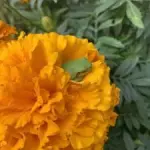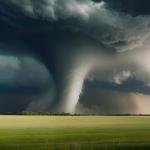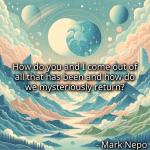 (This article is by guest writer Buck Marchinton. For a short bio, see below.)
(This article is by guest writer Buck Marchinton. For a short bio, see below.)
Rituals are, among other things, tools that help us process change. – Sasha Sagan
As an adult, Sasha Sagan makes her living as a writer, editor, and producer. As a child, she was instilled by her parents with a joy for the wonders of the cosmos and an unshakable respect for evidence over fantasy, speculation, or myth (her father is the late Carl Sagan). Her communications training and scientific foundations blend well in her 2019 memoir, For Small Creatures Such as We: Rituals for Finding Meaning in Our Unlikely World. In it, she ponders her own inner need for meaningful rituals, studying both natural phenomena and the ceremonies and beliefs of cultures around the world and throughout history.
I must admit, as I read past the first couple of pages of the introduction, I realized I was hearing Carl Sagan’s voice in my head. I immediately searched for an interview on Youtube so I could hear Sasha’s own spoken voice and recalibrate the inner timbre and rhythm. But it shouldn’t surprise that one hears the voice of the great popularizer of science in his daughter’s words, for Carl’s life – and death – resonate through Sasha’s own thoughts. They provide the foundation of her own thought processes and philosophy, and echo in the milestones and small moments of her life. Even the title of her book is drawn from a quote in Contact, a novel written by her parents.
Raised in a very secular home, Sasha was nevertheless aware of ritual and celebrations taking place around her. Although of Jewish descent, she sometimes went to mass with her nanny, and keenly felt bereft of Christmas as a child. As an adult, she felt moved to perform certain Jewish rituals – craving meaning in ancient traditions while sometimes struggling with the theist implications. Now the mother of a small child, she ponders what rituals and traditions she should impart to her offspring.
This book is more than a memoir. For each anecdote, Sasha pulls in related rituals or impulses from tribes, religions, and cultures around the world. Then she ruminates on these ideas in the context of her own life experience. She speaks of daily rituals between her and her husband (of Christian background, but now secular). She ponders the observances of the turning of the seasons, rites of passage such as marriage and death, monthly rhythms (of community, astronomy and physiology), sex, atonement, the independence days of individuals and nations, and others.
She discusses Thanksgiving Day: “…a kind of harvest festival, might be America’s best-loved secular holiday, but officially, the modern incarnation of Thanksgiving was introduced as expressly theistic.” She goes on to point out that the fiction of Native Americans and Pilgrims celebrating together is national rather than religious myth.
Sasha Sagan ponders the effort required to form a secular version of the community that religion readily supplies in the form of congregations; she discusses her successful attempt at community creating, and how it spread and evolved. She talks about abiding grief that sometimes resurfaces years later, and the small ways she has found comfort. She talks about the picture of her great-great-grandparents hanging near her parents’ kitchen, put there to remind her that they starved to death and that their living descendants were damned fortunate.
This is a guidebook of sorts, but not the authoritative how-to-ritual sort I see on the shelves so often. Questions of ritual and ceremony arise in the author’s mind. She searches for the natural phenomena behind the observances, cites the diverse methods of many cultures to mark said observances, and then speaks of her choice of ritual and why. Along the way, she affirms, always beautifully and sometimes poignantly, her family’s evidence-based beliefs. As she says in the introduction, “My parents taught me that nature as revealed by science was a source of great, stirring pleasure. Logic, evidence and proof did not detract from the feeling that something was transcendent – quite the opposite. It was the source of its magnificence.”
People who are interested how ritual might enhance one’s life should find this book well worth the time.
Brief Bio: Buck Marchinton is a wildlife biologist in Georgia. Besides possessing a passion for educating others about the natural world, he is deeply interested in a wide range of history, from the paleolithic forwards. He has been a philosophical naturalist for years, but only recently found it had a proper name.
















